How does one become Chancellor of Oxford University? Well, it helps to be the UK Prime Minister, but that is by no means a guarantee. The process of selecting a Chancellor is tortuous and perilous, beset by odd events and chance meetings, and is never completed until …
How do I know this? By means of reading a fascinating book of letters by a character about whom I’ve previously blogged (here, here and here), Hugh Trevor-Roper (H T-R, or Lord Dacre of Glanton to you).
When they met in 1947 Hugh Trevor-Roper, a young historian at Christ College, Oxford, was 33. Bernard Berenson, a world-famous art critic, was 82, frail but intensely curious about the world. Trevor-Roper promised to write to him and his letters continued until Berenson’s death in 1959. (cover blurb of book described below)
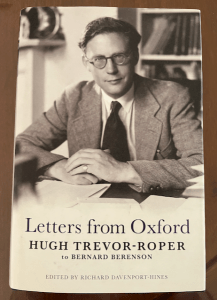 A selection of the letters appears in the 2006 publication Letters from Oxford, edited by Richard Davenport-Hines (Orion Books), who rightly (IMHO) claims that Trevor-Roper was “the greatest letter-writer of his generation”. It is to the contents of one of these marvellous letters that we will return. Not only are the letters wittily and engagingly written, but they reveal much about issues of culture, history, class and, above all, H T-R himself.
A selection of the letters appears in the 2006 publication Letters from Oxford, edited by Richard Davenport-Hines (Orion Books), who rightly (IMHO) claims that Trevor-Roper was “the greatest letter-writer of his generation”. It is to the contents of one of these marvellous letters that we will return. Not only are the letters wittily and engagingly written, but they reveal much about issues of culture, history, class and, above all, H T-R himself.
Harold Macmillan was UK Prime Minister from 1957 to 1963. His extensive Wikipedia entry outlines his eventful life, including harrowing experiences in World War 1 – wounded twice, on the second (more serious) occasion it is written that he “lay for over twelve hours in a shell hole, sometimes feigning death when Germans passed, and reading the classical playwright Aeschylus in the original Greek.” His political career is best known for his controversial role in the Suez Crisis of 1956. And yes, he was one of the publishing Macmillans. Included in Macmillan’s Wikipedia entry is the intriguing note that he was elected Chancellor of Oxford University in 1960, “in a campaign masterminded by Hugh Trevor-Roper“. Luckily for us, we have a detailed account of his masterminding in one of his letters to Berenson.
Now at this stage the ideal would be for you simply to read the full account (all 20 pages of it!), either by obtaining the book or by my extracting it and publishing it here. In deference to copyright provisions that second option isn’t viable, so I’ll now clumsily attempt to summarise his perfect prose, and intersperse it with delectable quotes. The particular letter to Berenson is dated 23 March 1960. After brief greetings, Trevor-Roper embarks on the tale:
Let me then plunge straight into the vortex. What a vortex academic politics are, you do not need to be told, although now, like the Epicurian sage, you sit outside it, only seeing the occasional blood-stained froth from which a shift in the wind carries past your eyes, or hearing, muted by intervening distance, the elaborate, learned, archaic squeals of the temporary victims. … what I am describing is simply a brief section of the eternal struggle, in which no-one ever wins a final victory, between academic Light (represented by me and my friends) and Darkness (represented by them).
Given the apparent importance of this battle, it raises the question of the significance of the Chancellor’s role:
But why, you might ask, is the election of any importance at all? What, in fact, does the Chancellor do? What indeed? The answer is, nothing. He sits, infinitely grand, infinitely remote, in purple or ermine-tinted clouds, from which on rare occasions he descends, in solemn and stately fashion, wearing a golden robe valued in current prices at one thousand pounds, in order to utter a few unintelligible blessings at purely ceremonial functions. Otherwise …
Of course this is somewhat tongue-in-cheek, because there are, as he readily admits, rare occasions when the Chancellor should and does intervene, and further needs to do so from a ‘very great height’, as the circumstances are invariably political. Trevor-Roper was keen to join the fray in finding a successor to Lord Halifax, who had just died, and his first candidate was Lord Salisbury (Robert Cecil, 5th Marquess of Salisbury, 1893-1972):
Is he not an Oxford man? Is he not a man of fine intellectual outlook? Is he not an Honorary Student of Christ Church (and such a position naturally arouses all my atavistic, tribal loyalty?). [H T-R was at Christ Church] And is he not, above all things, that rarest, most refined, most aristocratic, in fact unique, type of aristocrat: a Cecil?
However, to H T-R’s dismay, the “most determined, most active, most radical, most ruthless, most skilful of all academic politicians, Sir Maurice Bowra … had decided on that dullest of dogs, that ‘bum-faced purveyor of last year’s platitudes’ … Sir Oliver Franks.”
Bowra’s determination (he was Acting Vice Chancellor, compared with H T-R’s ‘lowly’ status as a “mere Fellow of Oriel”) and Lord Salisbury’s lack of intellectual distinction led H T-R to switch his choice to Harold Macmillan. Time was not on his side. “Scarcely had the last pious organ-notes of the memorial service for Lord Halifax died away in the university church when the ‘heads of houses’ gathered in the Delegates Room, a hundred yards away, under the brisk and ruthless chairmanship of Sir Maurice Bowra.” H T-R was not one of the heads, but had been working on a friend, the Provost of Worcester College, Sir John Masterman, to support Macmillan if the opportunity arose. It didn’t. Bowra worked the meeting with skill and emerged triumphant, with Franks obtaining a firm majority of votes. Macmillan was not even on the list of considered contenders. Disappointingly, Masterman “saw the way the wind was blowing … bowed before it.”
But this was just the beginning of the process. As H T-R surmised in the letter:
And now, it seems me, Maurice made his great error. And yet, can one say that? For in fact he nearly pulled it off. Like Hitler in 1941, he saw before him victory so large and decisive that, at that moment, the risks seemed trivial; and after victory, who would have challenged him on petty points of procedure?
In a triumphant rush, Bowra “proposed to send a telegram to Franks …inviting him to accept their nomination. And he would have done so had not the registrar protested and obliged him to wait … at least till after the meeting of Hebdomadal Council on Tuesday, three days later.”
Here Maurice Bowra, “presiding over it too as Vice-Chancellor, announced that the heads of houses – 27 of them – had agreed to nominate Franks. When this was announced, members of Council were pretty restive, and the Senior Proctor, army request, firmly stated, as a matter of fact, that the Prime Minister would be asked to stand, and that it would be quite wrong to suppose, or to let Sir Oliver Franks suppose, that his nomination would be uncontested.”
Nevertheless, Bowra was so confident that he could win before the opposition could muster their forces that he “dissolved the meeting without any record of its views and immediately thereafter sent the invitation to Franks in India.” His rash assumption was that if he could get Franks to agree straight away, then by the time Macmillan heard about it he wouldn’t agree to be on the list of contenders.
Why should he, when the university had already declared itself, when the candidate was already in the field, and when, by entering, he would merely risk defeat as the candidate of an insignificant minority party? In thinking thus, as I am sure he did, Maurice made a great mistake: he misunderstood the character of the Prime Minister. … I know the PM personally (he has been my publisher for twenty years) and think that I know his character. I know him as a gay, cavalier figure, ready for battle, fond of life and an occasional skirmish, and, above all, a rebel: a rebel against the Establishment.
All very well, but what was H T-R to do? A major hurdle was that Macmillan was in Africa, “moving from place to place with hectic rapidity, being pelted with brickbats by black men in Nairobi and by white men in Cape Town”. The advice from the PM’s contacts was to wait until he returned in three weeks. But time was not on the side of the forces of Light. The fickle finger of fate fortunately stepped in:
I had long ago accepted an invitation – an invitation which had long preceded any of these incidents – to luncheon with the PM’s son Maurice Macmillan. This invitation had completely disappeared out of my conscious memory until the day came for its fulfilment, and this day happened to fall just at the juncture which I have now reached in my narrative. … Maurice was at once enthusiastic: told me he knew his father would like nothing so much in the world … We arranged that all the documents (including, I’m afraid, some very indiscreet letters of mine) should be sent out to his personal assistant in South Africa, with instructions not to put them before the PM until he had been two full days at sea on his way from Cape Town to the Canary Islands. In this way we reckoned that the PM would see them when he had rested from politics and was revived by the rest, when he was undistracted, incommunicado, and at leisure to read and consider and savour the details …
The plot was under way, and the plotters had their assumptions upheld:
A few days later Maurice Macmillan rang me up with a radio message from his father. The PM said that there was nothing he would like more than to be Chancellor of Oxford, that he ‘would not shrink from a contest’; that much would depend on the head of his own college, Balliol; and that he himself must judge, on his return, whether the support we had mustered would warrant his standing.
There was still plenty to do, not the least the mobilisation of Balliol. And here a fateful fluke again came into play. The Master of Balliol was overseas at the time of the Council meeting, and so had not yet committed to a candidate. A couple of hasty telegrams later his support of Macmillan was assured. A more difficult ask faced the forces of Light; Maurice Bowra had gathered 149 signatories in support of Franks – they would need at least 150. It was not easy.
… it was difficult to get the timid academic world to publish their names as opponents of their friend, their neighbour, their colleague, their banker, their fellow-trustee of this or that, Sir Oliver Franks. It was in collecting my fellow-nominators that I discovered how solid the Establishment, the world of the middle-aged successful mediocrities, was for Franks. However we persevered and, I must admit, enjoyed it. What efforts we made in that fortnight before the PM’s return! What funerals I attended, what long-lapsed friendships I revived, what obscure colleges I suddenly honoured by my visits to their high-tables and common-rooms! Of course all scholarship, all lectures, all pupils went by the board: for undergraduates have no votes. And in the end I was able tossed the PM a list of 200 nominators. If we were short of heads of houses (though we had seduced one of theirs, just in time before Maurice Bowra stopped the rot by publishing his list), we had 33 professors against their 8; and if the women – that conformist sex – were solid for Franks, …well, the college bursars were solid for Macmillan: why, I can’t think: possibly simply because bursars always oppose heads: I simply don’t know: it is an electoral mystery, like the Liberalism of the Celtic fringe in Scotland and Wales.
The plotters waited Macmillan’s response with bated breath – it came a day later: “I’ll take a chance on it.”
What a splendid moment it was when the PM accepted! What astonishment, even mortification, it caused among the Establishment! The Times, which had tried to prevent Macmillan becoming PM in 1957; the Daily Telegraph, which had already published a positive statement that Franks would be elected unopposed and that the PM would never stand; in fact all the ‘respectable’ press, except The Sunday Times, were extremely stuffy about it.But by now it was a fact, and had to be faced. So a new set of problems was posed. The first problem was, would Franks stand down?; the second, if Franks would not stand down, how could we organise the Country Party to ensure victory?
Bowra capitulated, urging Franks to withdraw. Franks stood firm, not wishing to let down his supporters (many of whom, as H T-R claims “were by now only too anxious to be let down”). Further, a new leader of the Bowra camp emerged, in the person of the Master of Pembroke College, R.B. McCallum, who had previously publicly urged for the PM to be impeached. He had “no wish to see the same man, as Chancellor of the University, becoming ex officio Visitor of Pembroke College.”
To appreciate the issue, we need to understand the nature of the election, which would now be required (the first contested Chancellorship election since 1925). As explained in Wikipedia, “The electorate consisted of all members of the University holding the rank of Master of Arts, of which there were around 30,000 at the time. Votes had to be cast in person at Oxford in academic dress.” Faced with this daunting prospect, H T-R took it upon himself to conjure up the needed votes.
What hundreds of letters I wrote in those last three weeks before the election! My hand is still feeble in consequence (perhaps you doubt this as I approach page 30 of this letter). To every schoolmaster, every parson, every bishop, every convivial city business-man, every backwoods peer whom I thought reliable I wrote personally, in my own hand, using arguments ad hoc or ad hominem. … Bankers … I realised were rotten, root and branch (Franks is chairman of Lloyds Bank). Headmasters were generally unsafe … My bishops I picked with care … The newspaper world was unreliable … Rural peers were on the whole reliable; so was clubland, especially convivial clubland (Franks disapproves of all forms of pleasure). Parsons were very unpredictable … As a general rule the steady, successful middle-aged men were the most dangerous: the giddy-pated young and the rakish old were far better. …
But I must admit that on polling day the women gave us a lot of trouble. They are an unreliable sex (see the ancient philosophers, passim). I fear that Franks’ moral uplift disguised as philosophy knocks them all off balance. There was even a moment when one of my allies, noting the large number of men holding children while women went to vote, cried out, We are lost (or rather, since all proceedings are in Latin, Actum est de nobis!).
All, of course, was not lost. And Trevor-Roper provides insightful examples of the lengths both he and some voters went to in order to see their candidate triumph. It is noted that as only students who had taken their degrees could vote, large numbers who had qualified but never bothered to go through the degree-taking process did so just in time, as is detailed in the following:
Christ Church and Balliol of course were solid throughout, seeing firmly to our gentlemen’s agreement that we each support our joint monopoly of the Chancellorship. All my ex-pupils turned up, and of course I also wrote to every parent whose son I had ever jobbed into Christ Church. One of them was a baronet whose son located him for me in Paris. I found he was coming over for Cheltenham races, so I made him come over a day early and break his journey at the poll. Another wrote to me from wildest North Wales, ‘since you put my candidate in at the tail of the university, the least I can do is to help put yours in at the head’; and he duly came, voted, and deposited a crate of champagne at my house en route. Sir Gladwyn Jebb, our ambassador in Paris, sent a blank cheque in order to pay his own and his son’s back dues and so qualify both of them to fly over from Paris on polling day and vote for the PM. The last degree day before poling day was a splendid occasion: a marquis, three barons and (I am told, but it sounds excessive) fifty knights took degrees in absence in order to vote; so did several cabinet ministers, who were not going to miss promotion at the next cabinet-reshuffle for a trifle like this.
And Trevor-Roper was not averse to a little subterfuge.
I must admit I was rather cross with the bishop of Exeter, who had arranged a meeting of the governors of Macmillan’s old private school in Oxford on the day between polling-days, so that many governors, unable to spare two days in Oxford, missed the poll. I instructed the headmaster to lay on a rich banquet and inebriate them all beyond the possibility of movement, so that they would all have to spend the night in Oxford, and could be wheeled up to the poll early the next morning in barrows; but I’m afraid that even so some of them got away.
Oxford University is of course not a single entity – it’s a collection of fiercely independent colleges, and they behaved in idiocentric ways throughout the election. Balliol and Christ Church were wildly supportive of Macmillan, with Queen’s solidly for the ‘Frankites’. “Magdalen … sat buried in its hole, its fellows refused to come out on either side … St John’s similarly remained sunk in grubby neutrality.”
Meanwhile, the battle had spilled out to the national newspapers. Sir A.P. Herbert, former MP for Oxford University (yes, the University used to have its own MP) had initially supported Franks, but when Macmillan joined the fray wished to change sides. Following a precedent suggested by H T-R, Herbert wrote a letter to The Times explaining his change of heart. The paper, which had been “growing perceptibly stuffier every day, refused to publish his letter”. But connections are everything: H T-R’s old pal from Christ Church, Lord Birkenhead, had a brother-in-law who owned “the Daily Telegraph, and although that organ was pretty stuffy too, a little pressure there ensured that the letter was published, not a moment too soon. Xandra [H T-R’s wife] was particularly cross because her brother-in-law owns The Times, which had behaved so badly …”
This was a godsend: “it opened a way for all the jellies to wobble over into our camp.” Further, a former Vice Chancellor, A.C. Masterman, “wrote a letter of stupendous gravity and sent it to The Times … I … doubted whether it would be published; but my faithful ally, Charles Stuart was, as usual, right. He said, ‘yes, they will publish it, but on Thursday morning, I’ll bet any money you like, they will come out with a leader in favour of Franks.’ And so, sure enough, they did. In tones of such pomp and sanctimony as only The Times can use, its editor, Sir William Haley, gravely adjured all Oxford MAs to vote against the PM, whose indecent candidature, he said, had forced upon the university this unedifying contest.”
This was a profound mistake – William Haley “had received his education in the island of Jersey, and the only degree which he holds is an honorary LLD, Cambridge. That he should presume to instruct Oxford MAs how to vote in a matter exclusively concerning themselves was generally regarded as outrageous impertinence, and caused many a floating observer to descend finally on our side.”
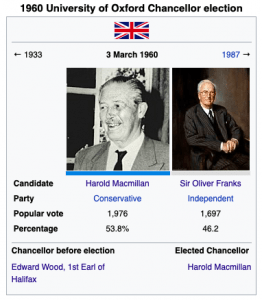 And so it was that Macmillan won the election. Not by a huge margin, granted, but a win from a starting position of significant disadvantage. A variety of forces was at work, with Trevor-Roper concluding that:
And so it was that Macmillan won the election. Not by a huge margin, granted, but a win from a starting position of significant disadvantage. A variety of forces was at work, with Trevor-Roper concluding that:
… the real division … was not political: it was a battle between the Establishment and the Rebels, between, on one hand, the solemn, pompous, dreary, respectable Times-Reading world which hates elections (indeed, hates life) and thinks that everything should be left to experts, the professionals, themselves and, on the other hand, the gay, irreverent, genial, unpompous world which holds exactly opposite views, the world of the educated laity who do not see why they should be excluded from politics because they are not politicians, nor from intellectual matters because they are not scholars, nor from the university because they are not academics.
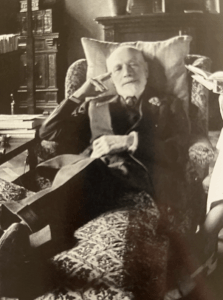
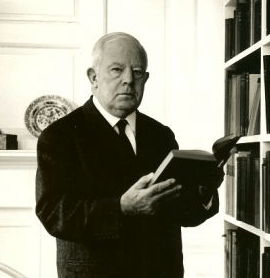
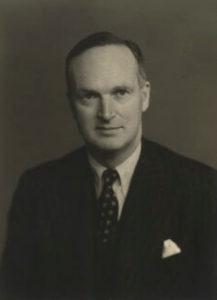
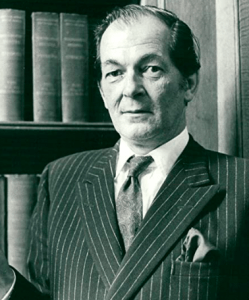
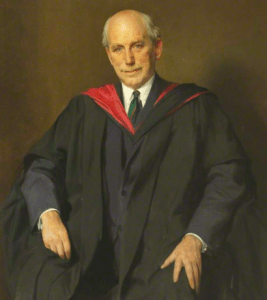


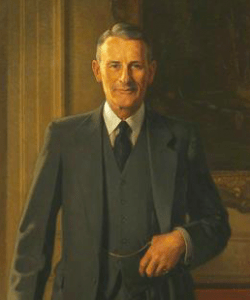
Fabulous stuff David! Makes Social Media influencers look like snowflakes!
To Andrys: Social media influencers ARE snowflakes!
A fascinating account, David. Why does Sir Humphrey Appleby come to mind?
Dave,
Great read, Indeed, Andrys, the twitter-sphere should eat its heart out.
Nicholas Way